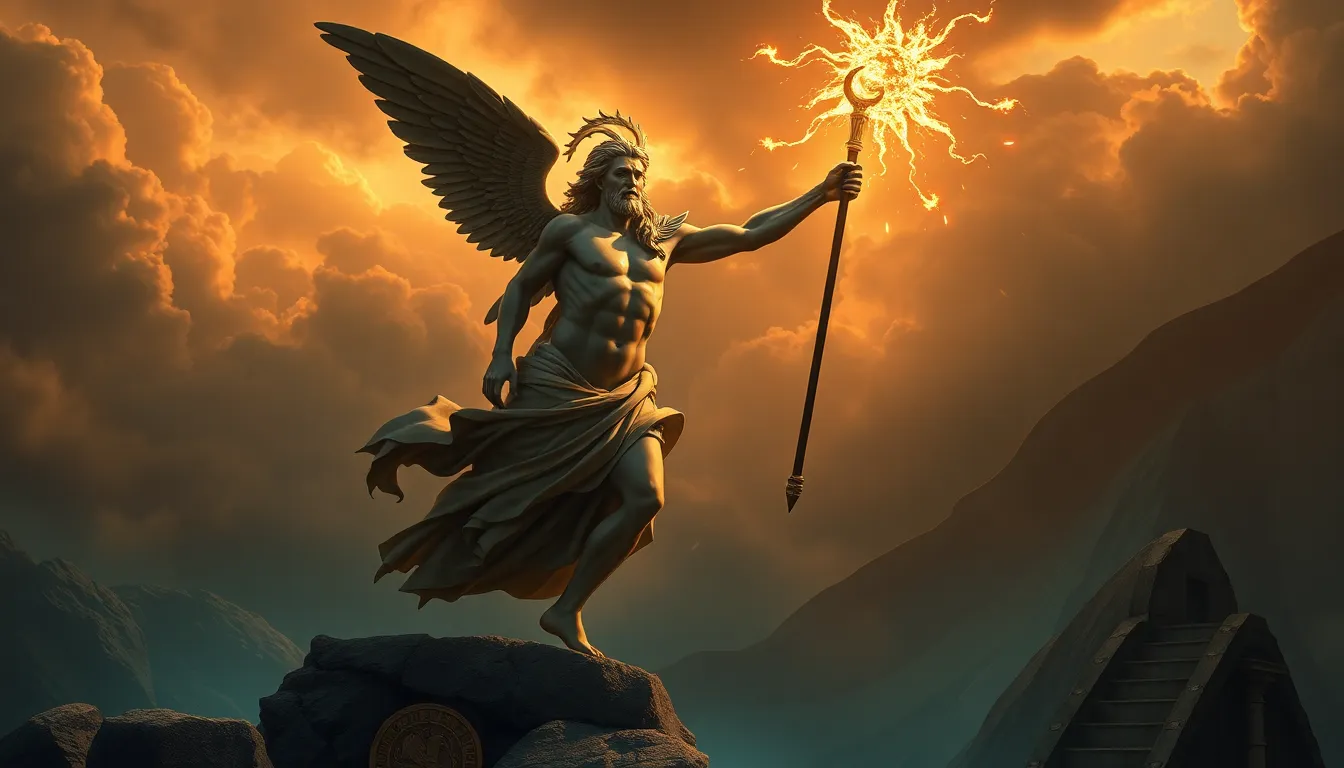Prometheus and the Age of Enlightenment: A Myth Revisited
Introduction: The Relevance of Prometheus Today
In Greek mythology, Prometheus is a Titan renowned for his intelligence and defiance against the gods. He is primarily celebrated for stealing fire from Olympus and giving it to humanity, an act that symbolizes the gift of knowledge and enlightenment. This myth has transcended time, finding new relevance during the Age of Enlightenment, a period characterized by reason, science, and individualism.
This article aims to explore how the myth of Prometheus has been reinterpreted through the lens of Enlightenment ideals, showcasing his significance as a symbol of human progress and the ethical dilemmas associated with the pursuit of knowledge.
The Myth of Prometheus: A Brief Overview
The story of Prometheus begins with his creation of humanity from clay, according to some accounts. After crafting humans, he felt pity for their suffering and sought to improve their lives. His most notable act of rebellion was stealing fire from the gods, which he presented to mankind. This act not only provided warmth and light but also enabled progress and civilization.
Key themes in the Prometheus myth include:
- Rebellion: Prometheus challenges the authority of Zeus, the king of the gods.
- Sacrifice: He endures severe punishment for his actions, being bound to a rock where an eagle eats his liver daily.
- The Quest for Knowledge: His gift of fire symbolizes the pursuit of knowledge and enlightenment.
In ancient Greece, the myth served as a cautionary tale about the consequences of defying divine order and the pursuit of forbidden knowledge.
The Age of Enlightenment: An Overview
The Age of Enlightenment, spanning from the late 17th century to the 18th century, was a transformative period in Western thought. It emphasized reason, scientific inquiry, and skepticism of traditional authority. Key figures of this era included:
- Voltaire: Advocated for civil liberties and freedom of expression.
- Jean-Jacques Rousseau: Explored the nature of human freedom and social contracts.
- Immanuel Kant: Encouraged individuals to think independently and question established norms.
This period marked a significant shift towards rationalism, individualism, and the scientific method, laying the groundwork for modern democratic and ethical systems.
Prometheus as a Symbol of Enlightenment Ideals
Prometheus embodies the spirit of inquiry and intellectual freedom that defined the Enlightenment. His act of stealing fire can be seen as a metaphor for the quest for knowledge and the power of human reason. Enlightenment thinkers drew parallels between Prometheus and their own efforts to challenge societal norms and pursue truth.
Connections between Prometheus and Enlightenment thinkers can be observed in various ways:
- Prometheus represents the triumph of reason over ignorance.
- His story illustrates the importance of questioning authority and seeking truth.
- He serves as an advocate for human rights, as his actions benefitted humanity at great personal cost.
Reinterpretations of the Prometheus Myth in Enlightenment Literature
Notable works of literature during the Enlightenment often referenced Prometheus, using his myth to explore themes of creation, responsibility, and the consequences of knowledge. One of the most significant reinterpretations is found in Mary Shelley’s “Frankenstein,” where the character of Victor Frankenstein embodies the duality of Prometheus as both a creator and a cautionary figure.
Key themes in these reinterpretations include:
- Creation: The act of creation comes with profound responsibility.
- Consequences of Knowledge: Pursuing knowledge without foresight can lead to tragedy.
- Heroism and Hubris: The line between heroism and hubris is often blurred, raising questions about ethical boundaries.
Prometheus in the Context of Scientific Advancement
The Enlightenment was a time of significant scientific progress, and the interplay between myth and science became increasingly relevant. Prometheus stands as a symbol of the challenges and ethical dilemmas that accompany scientific advancement. His myth reflects humanity’s quest for knowledge, often at great personal and societal costs.
Case studies of Enlightenment-era inventions and discoveries that echo the myth include:
- The Steam Engine: Revolutionized industry but also raised questions about labor exploitation.
- Vaccination: Offered hope for eradicating diseases yet faced ethical concerns over experimentation.
- Electricity: Enabled progress in communication and technology but also posed risks of misuse.
Modern Perspectives: Prometheus in Contemporary Thought
In contemporary thought, Prometheus is often reinterpreted in light of current issues such as technology, ethics, and the environment. Modern thinkers draw parallels between the myth and the challenges posed by artificial intelligence and climate change, as humanity grapples with the consequences of its innovations.
Key considerations in modern discussions include:
- Technology: How advancements can lead to both progress and ethical dilemmas.
- Climate Change: The responsibility of humanity in addressing environmental crises.
- Artificial Intelligence: The potential benefits and risks associated with creating sentient machines.
Prometheus serves as a metaphor for modern innovation, highlighting the potential pitfalls of unchecked progress.
Conclusion: The Enduring Legacy of Prometheus
The myth of Prometheus offers profound insights into the human condition, reflecting our quest for knowledge and the responsibilities that accompany it. Through exploring the connections between Prometheus and the Age of Enlightenment, we gain a deeper understanding of contemporary values and challenges.
As we continue to navigate the complexities of modern life, the enduring legacy of Prometheus reminds us of the importance of ethical consideration in our pursuit of knowledge and progress.




